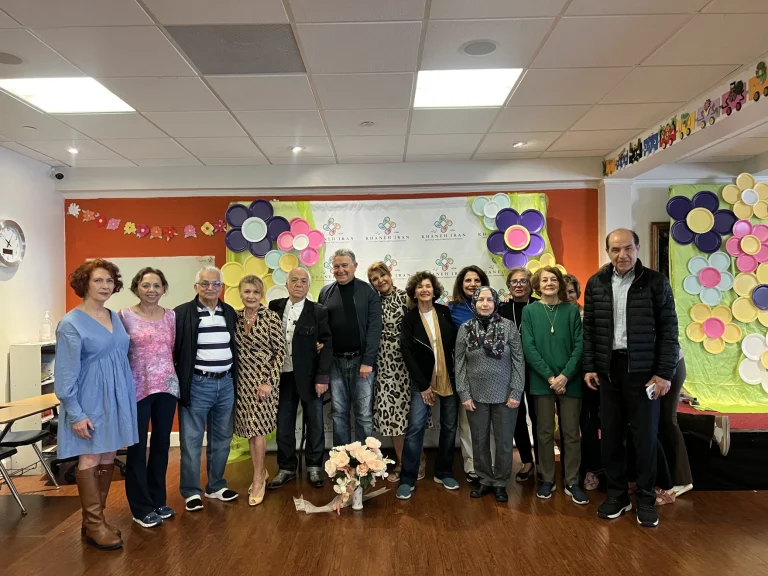It’s a balmy Tuesday morning in Rancho Palos Verdes, and people are slowly starting to trickle into a nondescript medical office building. They bring plates, removing the aluminium foil and plastic film to reveal banana bread drizzled with chocolate sauce and a pistachio crumb, plump nazook cookies, a cinnamon cake and bite-sized pieces of cantaloupe. Black tea is poured into glasses.
They greet each other with “Salam, chetori,” Farsi for “How are you?”
These seniors are here for a meeting of what they fondly call Tuesday Club at the South Bay Persian Heritage Foundation.
Maloos Ferasat started the gathering just before the pandemic to help seniors in the South Bay Iranian community combat loneliness. When her mother was visiting from Iran, Ferasat observed how she was eager to go back home; family members here were busy with work and school, and she struggled to speak English, essentially leaving her stranded at home.

(Yusra Farzan / LAist)
The gatherings, Ferasat said, help seniors feel seen, with about 75% of people saying they attend because they’re lonely.
The gathering starts with a poem and then it’s time for movement. Shireen Madani leads the group in zurkhāneh rituals, an ancient Persian martial arts practice.
“ Everybody enjoys it, so that gives a lift to the people too, to get up and do exercise,” Madani said.
Then, she plays sounds of a bubbling stream as the group of about 20 stretch before finishing the routine in a dance as they twirl in a circle.
“ I think I have taken the most benefit of the class than anybody else. I think about it the night before so I don’t mess up,” Madani said. “It helps me to have something to look forward to and enjoy.”

‘Home after home’
At every gathering, Ferasat organizes a speaker to encourage discussion among the group. In the past, a psychologist came in and spoke about how childhood trauma can affect adult life, they learned about Khashan — a village in Iran known for its rosewater production — and home insurance.
Sometimes the group goes on an excursion. A recent one took them to the local public library, where they got library cards and learned how to check out books in Farsi.
“ This is a place that we can all come and feel like it’s our home after home,” Ferasat said.



